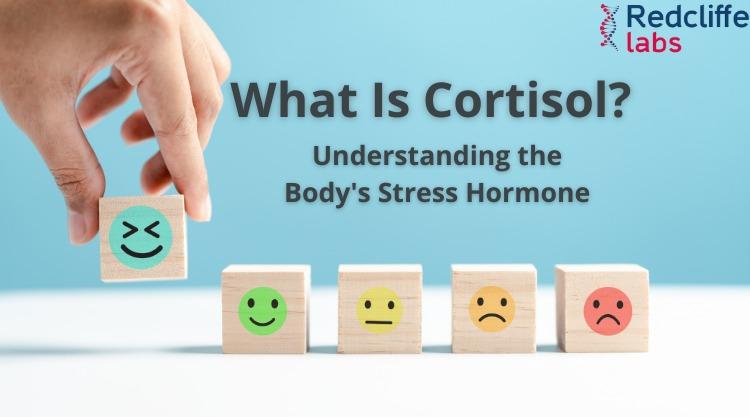All You Should Know About Gastric Chest Pain

Medically Reviewed By
Dr. Geetanjali Gupta
Written By Muskan Taneja
on Nov 19, 2024
Last Edit Made By Muskan Taneja
on Jul 19, 2025

When you feel pain or discomfort in the chest, it is normal to have mixed thoughts. However, not all chest pain signals a heart attack. In many people, chest pain occurs because of gastric issues. Gastric chest pain is often alarming, though it can be managed with simple lifestyle changes, understanding the body’s needs, and proper diet. By understanding your body’s signals, you can deal with these health issues, which can improve your overall well-being. In today’s blog, let’s learn all about gastric chest pain, its causes, and ways to relieve it.
What is a Gastric Pain Chest?
Gastric chest pain is a serious medical condition that can cause digestive issues or inflammation. It may feel like a heart attack, but for some people, it's just chest pain. Studies found that 11-16% of young Indians experience chest pain, which is 2-5% higher than that in Western countries, creating a questionable situation among Indians.
The Sri Jayadeva Institute of Cardiovascular Science and Research (SJICSR) in Bengaluru found 80-100 cases of chest pain every night, which people often consider a heart attack.
Difference between Gastric Chest Pain and Heart Pain
Gas pain may feel like chest pain, but both differ based on pain points, symptoms, and triggers. Let’s look at their differences below.
| Difference | Heart Pain | Gastric Chest Pain |
| Symptoms |
|
|
| Triggers | Can be triggered by physical exertion, emotional stress, heavy meals, and extreme temperatures. | Can be triggered by eating gas-producing foods, change in positions, and swallowing air. |
| Nature of the Pain |
|
|
| Location of the Pain | Can occur behind the breastbone or near the left corner of the chest. | Can occur in the abdomen or chest area, near the ribcage. |
6 Symptoms of Gastric Chest Pain
The gas passes through several mechanisms, which cause chest pain, bloating, discomfort, chest pain, and also gestational issues like inflammatory bowel disease, functional dyspepsia, and irritable bowel syndrome. You may experience:
- Nausea- Being nauseous is a common feeling experienced by people with gastric chest pain. Doctors found that people often feel the urge to vomit frequently.
- Belching or Burping—Gastric pain in the chest affects a person's breathing, causing belching or frequent burping. You burp a lot when excessive gas builds up in the lungs.
- Bloating occurs when your chest feels full or tight, making it feel distended or stretched. When your abdomen feels inflamed, the sensation can contribute to discomfort in the chest. Studies found that people experiencing chest pain due to gas often experience bloating.
- Indigestion- Gas builds up in your digestive tract, which can cause indigestion, food intolerance, digestive disorders, and food poisoning.
- Discomfort after eating—Whenever you eat heavy, oily, or processed food, you may feel discomfort or pain. This discomfort affects overall body functioning and can lead to digestive problems.
- Weight gain- Gas can cause medical conditions like hypothyroidism and cirrhosis that can cause digestive issues and increase weight. Hypothyroidism is an underactive thyroid that slows down metabolism, and cirrhosis can cause abdominal fluid buildup.
How Can You Resolve Them?
If you experience these symptoms, take care of yourself by avoiding fatty or fried foods, carbonated beverages, and excessive pressure, stress, or anxiety, as these can cause gastric chest pain. Also, practice deep-breathing exercises like getting a massage, yoga, and moving around.
6 Causes of Gastric Chest Pain
Gastric chest pain can affect you through various mechanisms. Here are some causes of gastric pain.
- Gastroesophageal Reflux Disease (GRD)
When gas builds up in your stomach, it creates GERD or Gastroesophageal Reflux Disease. Some people can feel pressure or aches in the back, shoulders, and abdomen, while others can feel burning sensations or discomfort in the chest.
- Aerophagia
Aerophagia is a medical condition in which people swallow air, either intentionally or unintentionally. This may lead to excessive gas in the digestive tract, which can cause discomfort, distention, and bloating.
- Diaphragmatic Irritation
Diaphragm is a condition in which a muscle separates the chest and abdominal cavity. This creates problems with breathing and swallowing. Distention or irritation in the digestive tract can also cause discomfort in the chest area.
- Inflammation in the Chest
Gastrointestinal conditions, such as irritable bowel syndrome (IBS), functional dyspepsia, and inflammatory bowel disease (IBS), can create gastric chest pain. This feeling can cause heightened sensitivity, discomfort, or pain among people.
- Gas gets trapped in the digestive tract.
Gas trapped in the digestive tract is a major cause of chest pain. When gas gets trapped in the digestive tract, it can create pressure, bloating, pain, or discomfort. This condition causes gastric chest pain.
- Radiation Therapy
Radiation therapy can cause gastric pain in the chest, which creates symptoms like diarrhea, anemia, and irregular bowel movements. These mild symptoms may turn chronic and can reduce quality of life.
These causes resolve with time and lifestyle modifications. But if delayed or ignored, you can experience dizziness, shortness of breath, breathing issues, and palpitations. See medical consultation if you see any of these symptoms during or after gastric chest pain.
Also, read https://redcliffelabs.com/myhealth/health/chest-pain-due-to-gas-symptoms-causes-and-treatment/
Medical Treatment of Gastric Chest Pain
Gastric pain in the chest directly affects the digestive system, but don’t worry, as these symptoms can be relieved with proper medications, lifestyle modifications, and dietary changes. A doctor can guide you with an effective medical treatment that provides relief.
Medications
Medicines are one-way healers. They can provide relief from gastric pain. A doctor may suggest antacids, simethicone, proton pump inhibitors (PPIs), and H2 blockers.
Antacids may help neutralize stomach acid and relieve heartburn and acid reflux. Simethicone is a medical component in medicines that can help reduce bloating. Your doctor may suggest the right medication containing simethicone. H2 blockers and proton pump inhibitors are the other two medications that reduce stomach acid and GERD issues, respectively.
Lifestyle Modifications
Lifestyle affects daily life and causes digestive issues. Activities like smoking and drinking can exacerbate gastric pain in the chest, so it's better to avoid or limit these practices. Tight clothes can also increase pressure around the abdomen, so choose to wear loose-fitting clothes.
Eating heavy and oily foods can trigger acid reflux in the body. It is better to avoid these triggering foods and eat mindfully. Also, eat a small portion and chew it properly to prevent the risk of bloating and gastric pain.
Staying hydrated aids digestion, so drink enough water and avoid caffeinated drinks, which can balance out fluid levels in your body. People with gastric chest pain should practice stress management strategies like yoga, meditation, and deep breathing exercises.
These lifestyle changes and medical treatment results may vary from person to person. So, before following any medications, consult your doctor.
10 Home Remedies for Gastric Pain Chest
Along with medical treatment, home remedies can provide relief from gastric pain by soothing digestive issues, reducing the buildup of gas, and alleviating bloating.
- Ginger Tea
- Peppermint Tea
- Lemon Water
- Fennel Seeds
- Apple Cider Vinegar
- Peppermint Oil
- Deep Breathing Exercises
- Heating Pad or Warm Compress
- Chamomile Tea
- Activated Charcoal
Diagnosis of Gastric Pain Chest
Gastric chest pain can be relieved by medical treatment, home remedies, and lifestyle modifications. Your doctor may diagnose gastric pain in the chest to locate potential causes and underlying gastrointestinal issues. They might use various diagnostic methods, such as physical examination, medical history, blood tests, and more.
-
Physical Examination
To diagnose chest pain, your doctor will examine your heart and lung function for signs of gastrointestinal or cardiovascular abnormalities. They will also examine your vitals, abdominal distention, and chest wall tenderness.
-
Medical History
Medical or family history is crucial to understanding the cause of chest pain. Doctors will examine your dietary habits, lifestyle, medications, and any family history of heart attacks. All these factors comprise understanding the diagnosis process.
-
Blood Tests
Blood tests evaluate the reason for inflammation, electrolyte levels, enzymes, and cardiac movements to rule out any prevailing or underlying cardiac health condition.
Which is the best blood test for chest pain?
A creatine phosphokinase (CPK) test helps check the cause of chest pain and rules out underlying heart attacks. India’s leading diagnostic lab, Redcliffe Labs, offers this test at INR 249 with a home sample collection service, making quality diagnostics affordable and accessible for every India. You can book the test from the website or mobile app.
To know more about blood tests for chest pain, check out https://redcliffelabs.com/myhealth/lab-test/blood-tests-for-chest-pain-unraveling-the-underlying-causes/
-
Imaging Test
Imaging or screening tests involve X-rays, ultrasounds, and CT scans, which assess your chest and abdominal organs to locate underlying abnormalities like GERD and pneumonia. These are simple monitoring tests that provide insights into your abdominal system.
-
ECG or EKG
Chest pain often feels like a heart attack. Your doctor might perform an electrocardiogram (ECG) to look at heart activity and rule out the cause of chest pain. Redcliffe Labs provides an ECG at home through which your doctor monitors your heart’s electrical activity and rhythm to diagnose heart diseases. You can avail of the ECG screening test at home at INR 799.
-
Upper Endoscopy
An EGD or upper endoscopy can visualize abnormalities in the esophagus, stomach, and duodenum, which contribute to gastric pain in the chest. A doctor uses this diagnostic test technique to determine digestive issues causing chest pain.
Your doctor may also recommend diagnostic tests, esophageal pH monitoring, trial of treatment, and a referral to a specialist.
Key Takeaways
Gastric chest pain is a minor health condition typically lasting only a few minutes to an hour. Some may experience complex symptoms like GERD, while some experience mild symptoms like gas build-up, as these symptoms differ in every individual. Consulting a healthcare professional can help in understanding the complexity of gastric chest pain symptoms. Redcliffe Labs offers a mercury test and creatine phosphokinase (CPK) test, through which you can check the cause of chest pain and your chances of heart attack and monitor your overall health.



